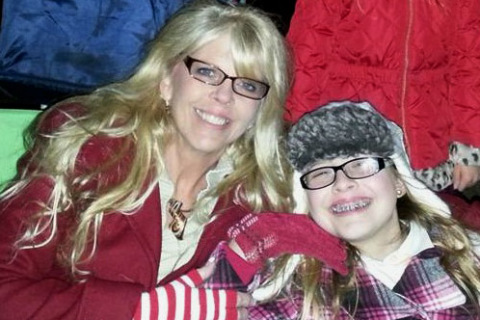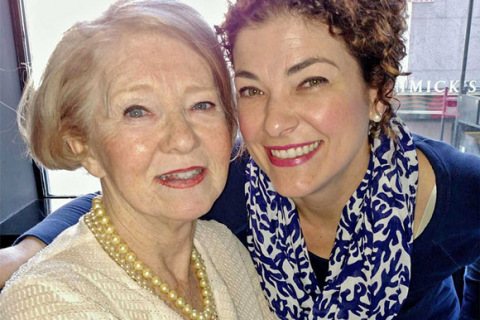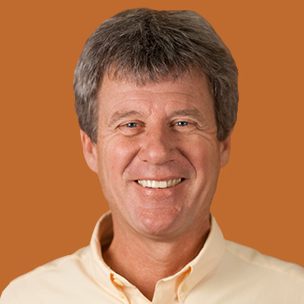Air Force Veteran Faces Mesothelioma with SEAL Mentality

Written by Tim Povtak | Edited by Walter Pacheco | Last Update: 10/25/2024 | 6 Min Read
Air Force veteran Dave Knapp was never a U.S. Navy SEAL, but there are times now — after reading “Lone Survivor,” a nonfiction American war memoir — that he quietly thinks like one.
It gives him strength. It toughens him mentally.
Knapp, 76, is a mesothelioma survivor engaged in the fight of his life, drawing inspiration from Navy SEAL Matt Axelson, the son of friends who died a hero in Afghanistan and became a major part of the highly-acclaimed story.
“What they go through in SEAL training is incredibly difficult physically, but even then, the difference in those who make it is mental, an ability to stay positive, and not let yourself fall into that downward spiral when things go wrong,” Knapp said. “And I thought about where I am now. It’s kind of like SEAL training. You have got to control your mind and stay strong.”
Knapp was diagnosed with pleural mesothelioma in March 2016, five months after health problems first began, and underwent subsequent surgery, radiation and chemotherapy at the Stanford Cancer Institute.
While he raves about the care he receives and has enrolled in a clinical trial involving pemetrexed, he takes a realistic approach to his future. He’s more thankful for the life he has led.
“At this point, it’s just a matter of buying some time. And buying time is good. I’ve already had 76 great years and more than my share of good times and good fortune,” Knapp said. “I’ve just been pretty darn lucky my whole life.”
Keeps Busy After Military Career
Knapp spent much of his working life as a municipal administrator, starting in San Diego and making stops as a city manager in Boulder, Colorado; Los Gatos and Cupertino, California; and finally Highland Park, Illinois; where one of his sons and two of his grandchildren reside.
After graduating from the University of the South in Sewanee, Tennessee, he served seven years in the U.S. Air Force (1963-70), where he was trained as a radar counterintelligence officer. He was stationed in Europe, North Africa and the Middle East.
He married his high school sweetheart shortly after joining the Air Force, and they recently celebrated their 53rd wedding anniversary. Both are retired and live in Los Gatos.

Knapp and his wife share a happy moment.
Knapp recently lent his experience to the Los Gatos city staff as they finalize plans for a U.S. veterans memorial in town. As city manager of Cupertino (2000-2012), he was instrumental in the memorial built there a decade ago after Axelson, who was born in Cupertino in 1976, died fighting for his country.
“I’ve had some great jobs, a wonderful wife and children, a great church family that takes good care of us, and a lot of friends,” he said. “My brain doesn’t work as well as it used to, but life is still pretty good.”
Good Days and Bad Days
Even before he was officially diagnosed, he did his homework on mesothelioma. He predicted his cancer before his doctors confirmed it. He also has the fast-growing, biphasic cell type of mesothelioma, which carries a short, six-month prognosis.
After diagnosis, he quickly wrote his obituary. He even wrote out the memorial service he wants to have. He started giving away some of the nice clothes he wore during his working years. He wanted to make it as easy as possible for his wife and family.
“My attitude is we’re all terminal, every one of us. Everyone has to die of something. I guess the easiest way to die is you just fall asleep and don’t wake up, but that’s not so easy on the family. It’s nice to have a little prenotice,” he said. “And if you’re going to be sick like this, Silicon Valley is a pretty nice place to be. So how can I complain?”
The chemotherapy he currently receives as part of the clinical trial still hits him hard, but he considers it a worthwhile part of the fight. He has good days, and not-so-good days, which he battles through.

Former co-workers enjoy time with Knapp.
“I did all kinds of things after the diagnosis, but then I realized, this could go on for a while, so I live day to day now,” he said. “I would tell someone [just diagnosed], don’t let them put any dirt on you yet. The assumption is, ‘Oh my God, this is it. It’s over.’ Well, it’s not over. There is a lot left to do. It may be quick, but it may not be quick. Don’t automatically make the assumption that you’re on the way out.”
His last two CT scans were mixed. One showed slow growth of the tumor. The second scan showed no growth, which encouraged him. He sees the Stanford Cancer Institute staff regularly.
Enjoys His Man Cave
Knapp’s fading health, though, has led to a slower pace and a lifestyle switch. He still walks on his treadmill, uses his hand weights and goes to dinner with his wife. But he gets out of breath quickly. Fatigue can be a problem.
Much of his time now is spent reading in his mini-library, which he built inside the shed behind their bungalow home in Los Gatos. Inside the shed is a desk, fan, big lounge chair where he sits, and several book cases that are overflowing with a variety of books, many of them classics. He sits there and listens to Renaissance music. He reads for hours.
“It’s my man cave,” Knapp said. “I just needed a place for all the things I collected through the years when I had an office. It’s where I go and read and spend a lot of my time. It feels good.”
It’s where he read “Lone Survivor,” the story told through the eyes of Marcus Luttrell, the surviving hero from SEAL Team 10.
When he finished it, the book never returned to the shelf. It remained on his desk, a visible reminder of the strength and courage he needs to move forward in his own personal battle.
“Cancer is a fight,” he said. “And I have a lot going in my life to make it worth the fight.”






